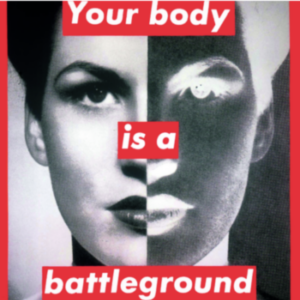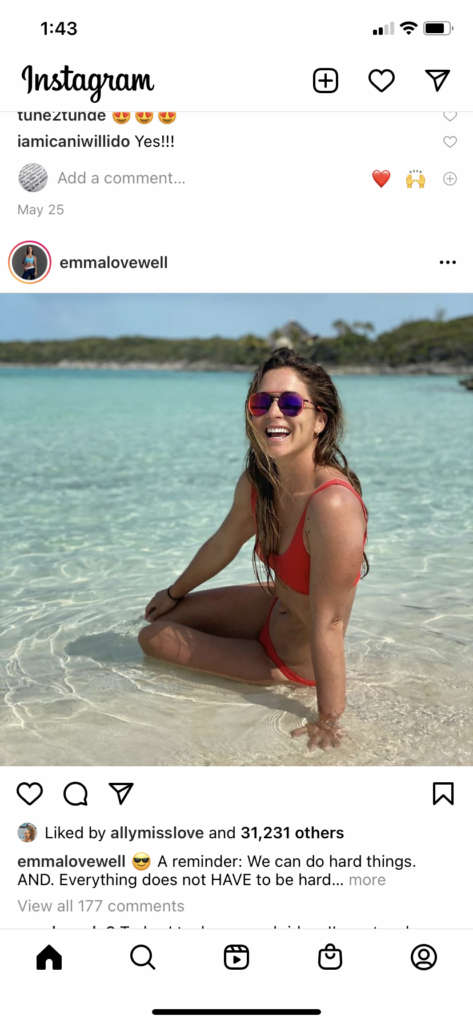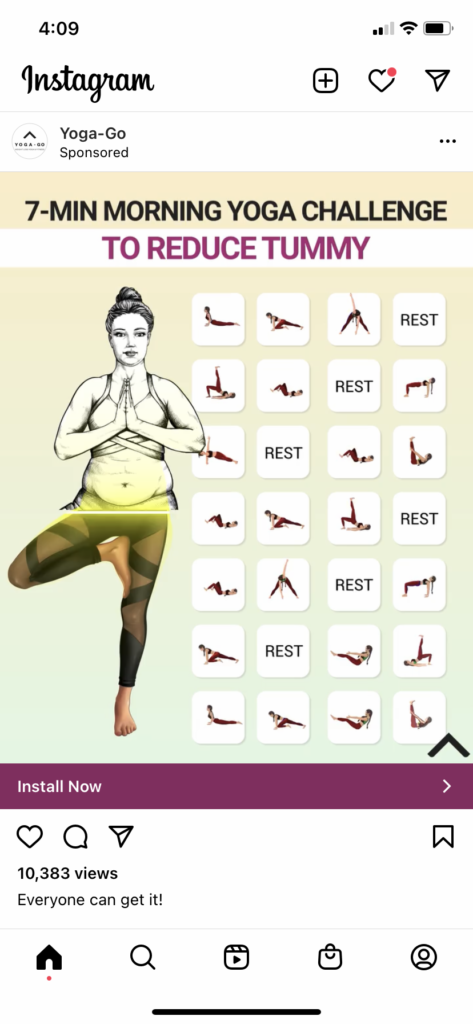Several of our readings discussed the concept of the gaze: the colonial gaze evaluating black women’s bodies, the male gaze evaluating female hunger, even the elusive self-gaze that we only find in reflection via mirror or screen. Our readings also suggested layers of that gaze that peer beyond our bodies into our datafied selves, seeing representations of who we are in hospital monitors, friend networks on social media, even our locations. Heading to Instagram, I saw the advertiser’s gaze at work. I don’t have a single selfie posted, yet the advertisers are already picturing me. Because I follow two Peloton instructors (who are actually friends of friends of mine) and because Instagram uses Facebook info, such as age, to build their picture of me, the ads prey on my perceived vulnerability: a desire to look like those I follow. The image of Emma Lovewell gets read as who I want to be. The ad tries to get me to believe that Yoga-Go can get me there. (Note that the ad is dynamic, as the “chubby” line drawing gets swiped over to reveal a thinner, “fitter,” fully realized woman in color.)
Unruly Bodies
A MALS Summer Course




